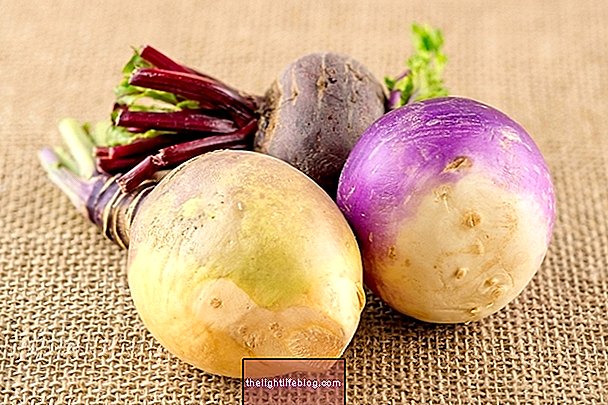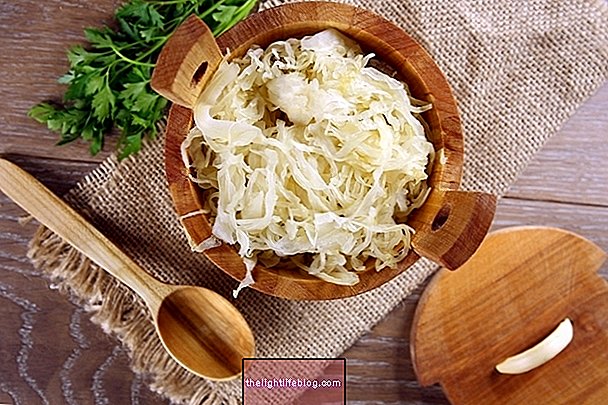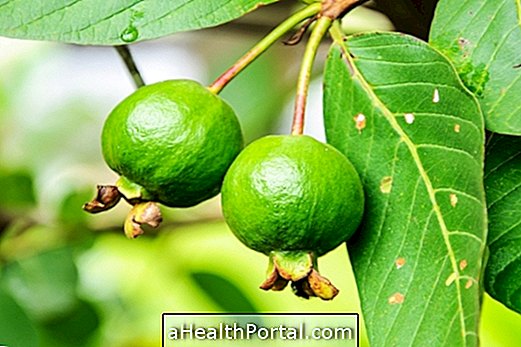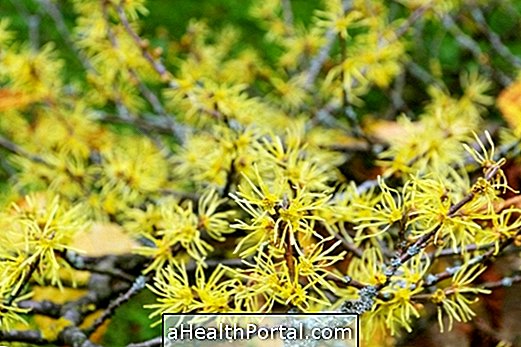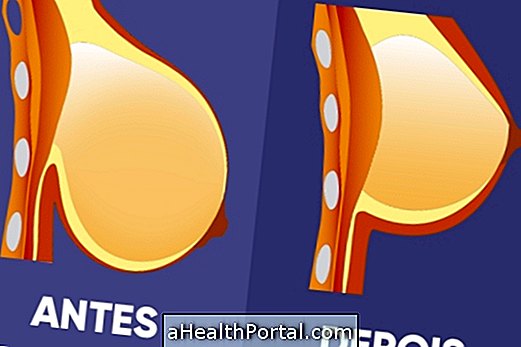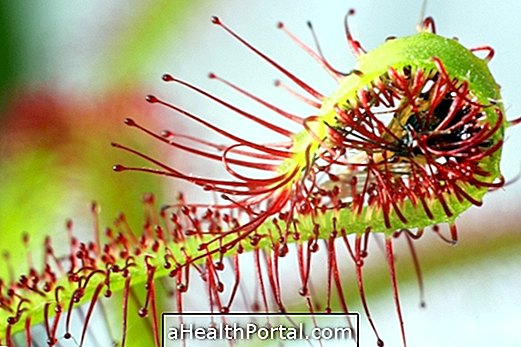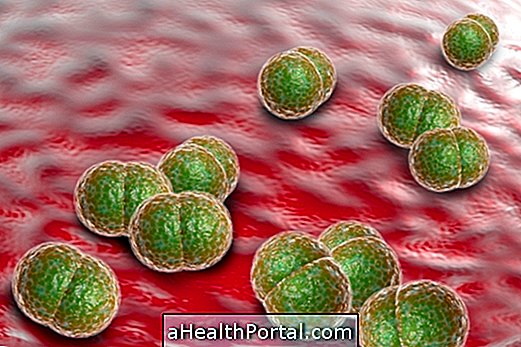Macadamia or macadamia nut is a fruit rich in nutrients such as fiber, protein, healthy fats, potassium, phosphorus, calcium and magnesium, and B vitamins and vitamin A and E, for example.
In addition to being a tasty fruit, macadamia nuts have several health benefits such as fighting free radicals, improving bowel function, helping with weight loss and protecting against diabetes and heart disease.
Although macadamia has several benefits, it is a caloric fruit, which in every 100 grams has 752 calories, and should be consumed in moderation. Therefore, it is important to eat a balanced diet, with the guidance of a nutritionist, to obtain the desired benefits.

The main benefits of macadamia are:
1. Helps you lose weight
Despite being a caloric nut, macadamia is rich in good monounsaturated fats like palmitoleic acid, also known as omega 7, which helps to produce enzymes responsible for burning fat, increasing metabolism and reducing fat storage.
In addition, macadamia is rich in fibers and proteins that reduce hunger and increase the feeling of satiety, in addition to phytosterols, such as campestanol and avenasterol, which decrease the absorption of fats by the intestine, helping to reduce weight.
Check out 10 other foods that help you lose weight.
2. Protects against cardiovascular disease
Macadamia monounsaturated fats work by increasing the burning and absorption of fats and, thus, help to reduce bad cholesterol and triglycerides that are responsible for the development of cardiovascular diseases such as myocardial infarction or atherosclerosis.
In addition, macadamia nuts have flavonoids and tocotrienols that have an antioxidant effect helping to decrease the production of inflammatory substances, such as leukotriene B4, responsible for increasing the risk of heart disease.
3. Helps lower cholesterol
Palmitoleic acid present in macadamia nuts helps to lower bad cholesterol and triglycerides that are responsible for the formation of fatty plaques in the arteries that become narrower and less flexible, causing atherosclerosis that can lead to heart attack, heart failure and stroke .
In addition, tocotrienols, a form of vitamin E, present in macadamia act as antioxidants, reducing cellular damage caused by oxidative stress and reducing blood cholesterol levels.

4. Prevents diabetes
Some studies show that macadamia nuts protect against the development of the metabolic syndrome characterized by increased blood sugar, which can cause diabetes, and can be an important ally in preventing this disease. In addition, in the metabolic syndrome there is also an increase in bad cholesterol and triglycerides.
5. Improves bowel function
Macadamia contains soluble fibers that improve digestion and regulate the functioning of the intestine.
In addition, soluble fibers act as a prebiotic, reducing intestinal inflammation, protecting against the development of irritable bowel syndrome, ulcerative colitis and Crohn's disease.
6. Prevents cancer
Some studies show that flavonoids and tocotrienols present in macadamia have antioxidant and anti-inflammatory action, reducing cell damage and, thus, help to prevent or assist in the fight against cancer. However, studies in humans are still needed.
Check out more foods that help prevent cancer.

7. Slows aging
Antioxidants present in macadamia, such as vitamin E, prevent the formation of free radicals that damage cells and thus delay skin aging.
In addition, macadamia is also rich in vitamin A responsible for repairing skin damage and keeping skin and mucous membranes intact.
8. Improves brain function
The antioxidant effect of tocotrienols in macadamia reduces damage to brain cells and may prevent the development of Alzheimer's and Parkinson's disease. However, studies in humans are still needed.
9. Improves bone health
Macadamia is a source of nutrients such as calcium, phosphorus and magnesium that help in the formation and maintenance of bone cells, so it can be an ally in preventing osteoporosis.

How to consume
Macadamia nuts can be eaten in breads, salads, flour and vitamins, for example, or as macadamia oil, used as a spice or in the preparation of savory foods or even as cooking oil.
In addition, macadamia can be consumed in food supplements or used as an ingredient in cosmetic products for skin and hair.
Healthy Macadamia Recipes
Some Macadamia recipes are quick, easy to prepare, nutritious and include:
Iced coffee with macadamia nuts

Ingredients
300 ml of cold coffee;
1 square of semi-bitter chocolate;
4 to 6 tablespoons of macadamia syrup;
200 ml of milk;
Macadamias and chopped nuts to decorate;
Sweetener or sugar to taste.
Preparation mode
Put the coffee, the square of semi-dark chocolate, the milk and the macadamia syrup in a blender. Beat everything and put in a glass. Place the macadamias and chopped nuts on top to decorate.
Toasted Macadamias

Ingredients
Macadamia nuts;
Nutcracker;
Melted butter;
Water;
Salt to taste.
Preparation mode
Peel the macadamia nuts with the nutcracker and place the macadamias on a tray. Prepare a solution with water, melted butter and salt and sprinkle on top of macadamias. Preheat the oven to 120ºC and place the pan with the macadamias to bake for 15 minutes.
Possible side effects
Macadamia is rich in soluble fibers and fats and when consumed in large quantities it can cause diarrhea and increase the production of intestinal gases.
Medical help should be sought immediately or the nearest emergency room if you experience symptoms of allergy to macadamia, such as skin rashes, difficulty breathing, a feeling of tightness in the throat, swelling in the mouth, tongue or face, or hives.
Who should avoid macadamia nuts
Macadamia should not be consumed by people who are allergic to its components or who are allergic to peanuts, hazelnuts, almonds, Brazil nuts, cashews or walnuts.
In addition, macadamia should not be given to animals such as dogs and cats, for example, as they have a different digestive system from humans and can cause vomiting and diarrhea.
Was this information helpful?
Yes No
Your opinion is important! Write here how we can improve our text:
Any questions? Click here to be answered.
Email in which you want to receive a reply:
Check the confirmation email we sent you.
Your name:
Reason for visit:
--- Choose your reason --- DiseaseLive betterHelp another personGain knowledge
Are you a health professional?
NoMedicalPharmaceuticalsNurseNutritionistBiomedicalPhysiotherapistBeauticianOther
Bibliography
- BOLLING, Bradley W .; et al. Tree nut phytochemicals: composition, antioxidant capacity, bioactivity, impact factors. A systematic review of almonds, Brazils, cashews, hazelnuts, macadamias, pecans, pine nuts, pistachios and walnuts. Nutrition Research Reviews. 24. 244–275, 2011
- ALASALVAR, Cesarettin; BOLLING, Bradley W. Review of nut phytochemicals, fat-soluble bioactives, antioxidant components and health effects. British Journal of Nutrition. 113. S68-S78, 2015
- 269-279. Chemical composition of nuts and edible seeds and their relationship with nutrition and health. Nutrition Journal. 23. 2; 2010
